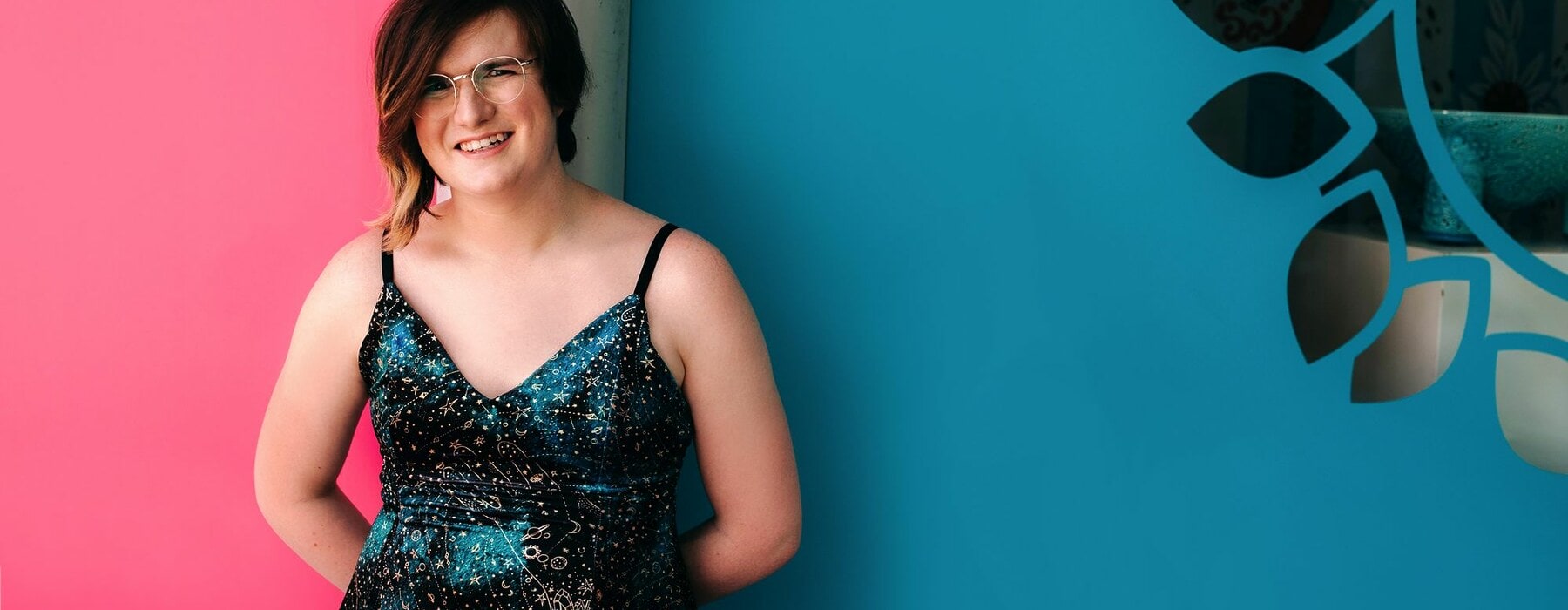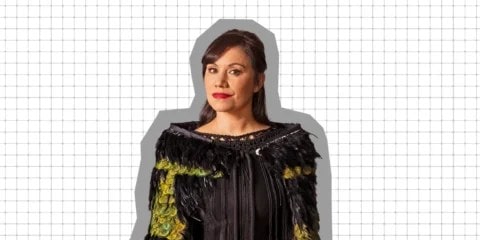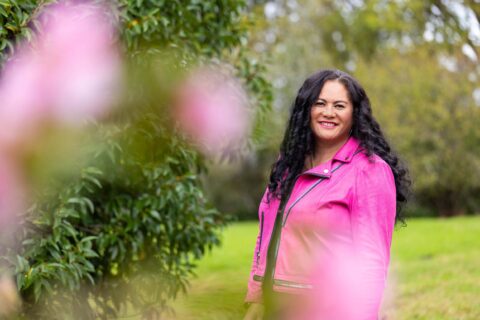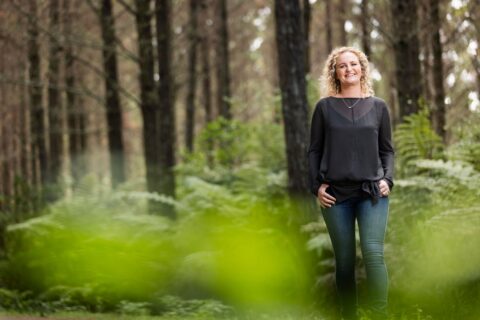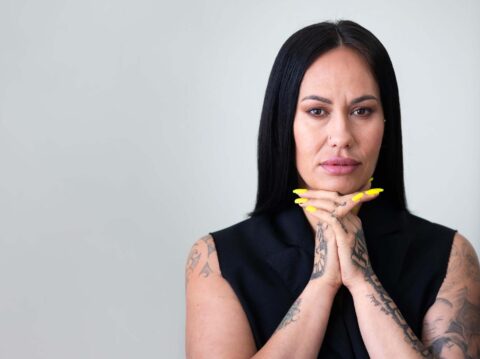Chelsea Finnie was on the home stretch of her transition from male to female, when Covid threw yet another hurdle her way. She tells Sharon Stephenson why she’s not giving up.
Once upon a time, there was a boy. A normal kid growing up in suburbia who liked model planes and hanging out with friends. But somewhere between the ages of four and six, that little boy realised something wasn’t quite right.
“One of my earliest memories is wondering why I had a penis instead of a vagina,” says Chelsea Finnie. “I felt inferior to girls and often wished I could just disappear. I would dream about how much better life would be if I’d been born female.”
We’re in a central Wellington café and, over pots of tea (apple for Chelsea, green for me), we’re discussing the 27-year-old’s transgender journey. As she wraps her hands around her cup, Chelsea talks matter-of-factly about wanting to kill herself.
“There have been many times when I’ve been in absolute despair at not being able to transition, times when I’ve thought, ‘I’m going to kill myself .’ That’s how bad it can get.”
By now, the IT consultant should have been recovering from gender-affirming surgery, an essential part of the transition jigsaw. She was due to fly to Thailand for the almost eight-hour operation last October, funded with a $33,000 bank loan. However, thanks to Covid-19, that has now been tentatively rescheduled for August.
“It’s incredibly frustrating, but there’s nothing I can do about it except hope I can fly to Thailand in August.”
If she can, it will be a significant turning point in a life she describes, after much thought, as “not great”.
“I had a good family and education and all that kind of thing. But being male sucks and I’ve spent hours praying to God to make me female.”
Chelsea’s story begins in Dunedin, where she was the third of four children born to a meteorologist father and a mother who worked in IT.
Shortly after she was born, her father returned to a job with Fiji’s meteorological service and Chelsea lived there for a year before the family moved again – this time to Wellington.
She spent much of her school years trying to fit in, to be the boy she was supposed to be.
“I tried to suppress my feelings and didn’t really know who I was until I hit my late teens, probably because there was so little education and representation in the media at the time,” Chelsea recalls. “I remember going through sex education at school and having to learn about male puberty, but wishing I was going through female puberty. If only someone had told me at the time that if I didn’t want to go through male puberty, there were options to delay it.”
While she wasn’t raised in a religious family, Chelsea gravitated to a new-age church via high school friends. It was a religion that believed any deviance from the traditional male/female roles was a sin – an attitude Chelsea admits held her back for a long time.
But when one of the church members thanked God for saving their brother from having a sex change, she knew it was time to leave.
Society also wasn’t overly kind, with kids at school asking if she was gay and a family member referring to transgender people as “sick”.
Once, at an IT job in Wellington, several of her colleagues complained to HR about her using the women’s toilets.
“Most of the time I would use the single-occupancy, gender-neutral bathroom, only using the women’s when that option was unavailable, because I wanted to avoid confrontation.”
A legacy of Chelsea’s treatment has been crippling social anxiety, which she still deals with.
In 2014, realising she couldn’t go on, Chelsea asked her GP to help her transition. “He was an older guy and admitted he hadn’t come across this issue before. But he was really helpful, referring me to an endocrinologist.”
And so began Chelsea’s chemical journey to transitioning, including drugs to stop the production of testosterone (and male fat/muscle, as well as facial and body hair), estradiol to feminise her by softening her skin and redistributing fat, and progesterone to promote breast growth. She counts herself lucky that she’s broad of hips but not of shoulders, which has made buying and wearing dresses easier.
What’s not so lucky is the cost: around $50 each month for medication that’s essential both to Chelsea’s physical and mental wellbeing. It’s one of her greatest bugbears, she says, rolling her eyes so hard she almost sprains them.
“Healthcare for transgender people in New Zealand has a long way to go. Hormone therapy for trans women isn’t terribly efficient as most treatment and funding is based on HRT [hormone replacement therapy] for post-menopausal women,” Chelsea says. “That means it isn’t strong enough for my needs, because I need hormone levels that can kick off a second puberty. It’s been a fight to get my hormone levels increased and it’s exhausting having to explain it to pharmacies every month.”
Another complaint is the long wait for gender-affirming surgery in New Zealand, with only around 10 or so being completed each year.
“The government has recently lifted the cap and provided additional funding, but I’d still have to wait years to have my surgery here. It’s why I had to borrow a lot of money and organise my own surgery in Thailand.”
It’s likely Chelsea will also require facial feminisation and voice feminisation surgery, both of which she’ll have to fund herself at a later date in Thailand and South Korea.
“It takes a lot of balls to transition,” she deadpans. “But I feel like facial and vocal surgery are necessary for me, because sometimes people will refer to me as a man because of my face and voice.”
It takes a lot of balls to transition… But I’ve now found a community of transgender friends who support and encourage me
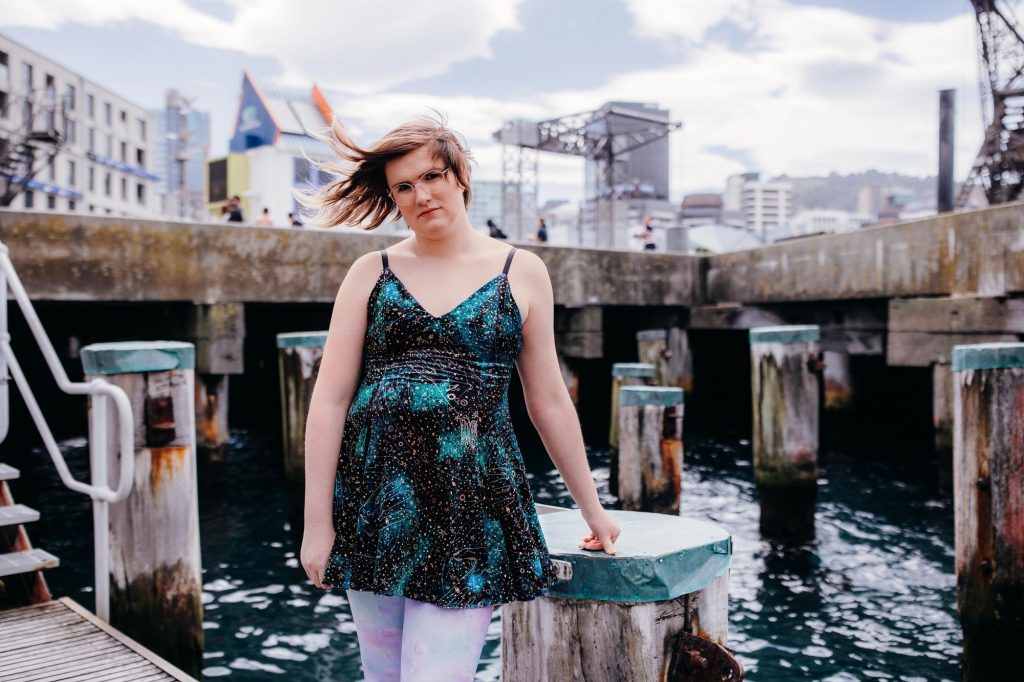
PHOTO BY EMILY CHALK
Coming out to family and colleagues is one of the most difficult things Chelsea has ever done – “I chose to wear a dress and make-up to work just after Christmas in 2014, when most of my colleagues were still away” – and admits she has lost several friends in the process.
“Some told me I was just confused, while others said transgender people are mentally ill,” Chelsea says. “But I’ve now found a community of transgender friends who support and encourage me. At work I’m on the inclusivity team, which is great because there’s a need to increase inclusivity in every sector of society.”
Before Chelsea rushes back to work, I ask her if she has any advice to others in her position.
“You have to really advocate for yourself, because the system won’t do it for you. Do your research too – often you’ll know more than the doctors. And have a supportive network to keep you going, because it’s so incredibly hard.”

